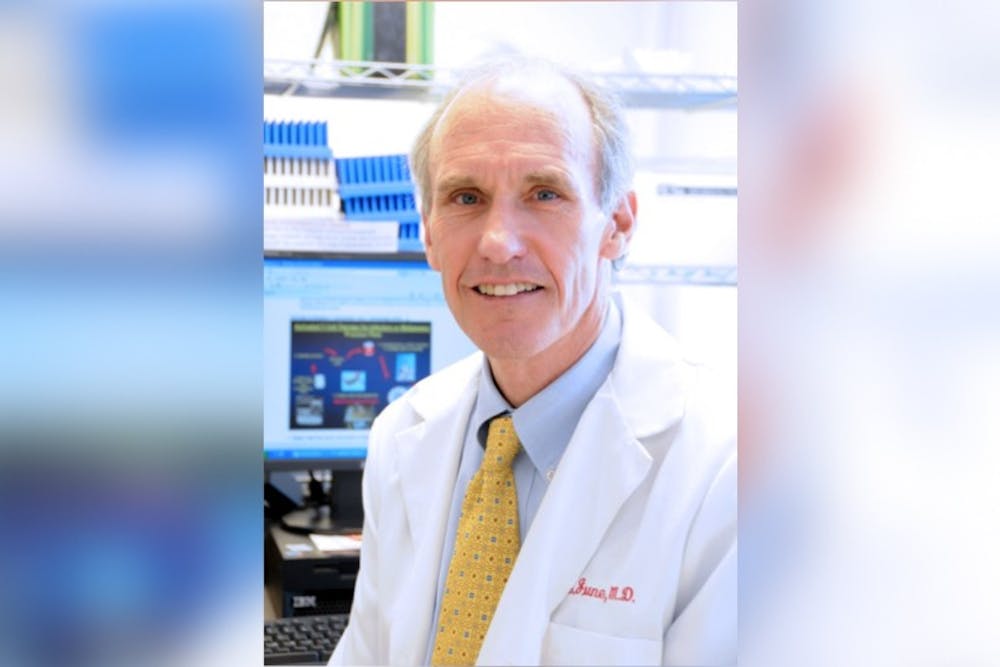Carl June, an immunotherapy professor at the Perelman School of Medicine who revolutionized blood cancer treatment, is joining worldwide efforts to find medicines for COVID-19 after recovering from the virus himself.
June’s lab pioneered T-cell immunotherapy to treat blood cancer, an expensive one-time treatment that has cured terminally ill patients. Severe coronavirus infections can cause an immune system overreaction similar to a side effect of T-cell therapy, which prompted June to join the rush to find a coronavirus treatment, The Philadelphia Inquirer reported.
The drug Actemra, which June's team used to counteract the immune overstimulation caused by T-cell therapy, is now in clinical trials for COVID-19 treatment, the Inquirer reported. Actemra has helped relieve severe COVID-19 cases in a small study in China and in one case in the United States.
June told the Inquirer that while he is confident Actemra will be effective, the drug is very expensive. He also proposed a trial of cyclosporine, which is more affordable.
“It’s affordable, there’s a good supply, and it could be very helpful in the developing world,” Emma Meagher, Penn Medicine’s chief clinical research officer, told the Inquirer.
Lab studies suggest that cyclosporine could reduce the reproductive ability of the coronavirus, although it may do the opposite, Meagher told the Inquirer. Inflammation in COVID-19 is slower than it is in T-cell therapy, so reducing the body’s natural defenses may also increase chances of pneumonia, Meagher added.
Penn’s ethics-review board is currently considering June’s proposal for a small trial giving cyclosporine to patients soon after hospitalization to prevent the immune overreaction, the Inquirer reported.
Penn is one of many centers exploring the possibility that antibodies in recovered patients’ blood plasma may help patients in critical condition. June, who recently recovered from the coronavirus himself, is now attempting to donate his plasma, the Inquirer reported.
RELATED:
As Penn moves on-campus students to high rises, it denies dorms will house COVID-19 patients
HUP Pavilion tower accelerates construction to aid Philadelphia’s fight against COVID-19
Penn Medicine is also testing hydroxychloroquine, a drug to treat arthritis and malaria, as a coronavirus treatment.









